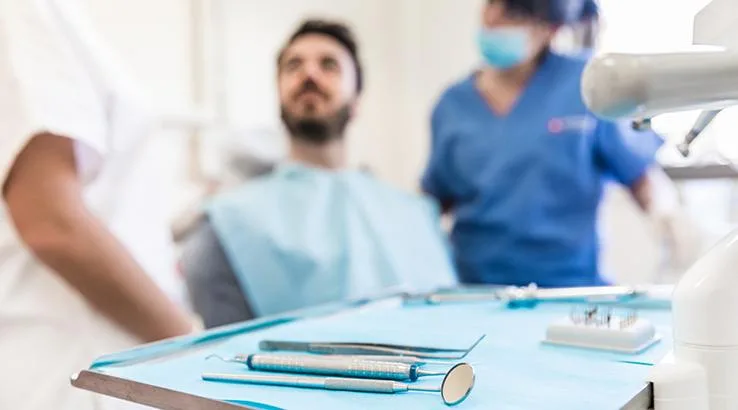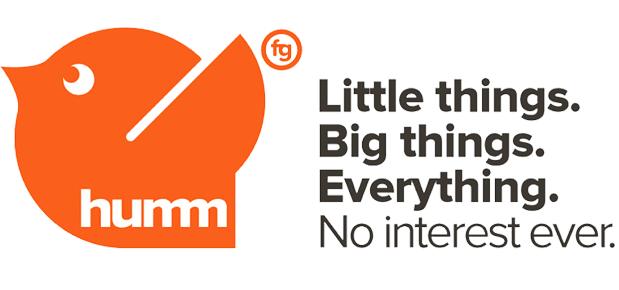How much does dental really cost?

Turned off by dental costs? Find out how much you should be paying for these 5 common dental procedures.
If you're an Australian, there's a good chance the dentist doesn't feature regularly on your to-do list. It's a fact: a tenth of us don't visit our tooth doctor as regularly as we should, leading to problematic oral hygiene and associated health conditions.
Most of this can be explained by the fact that shopping around for a dental procedure, no matter how simple, results in a frustrating cascade of seemingly random quotes from different dentists. Unlike Medicare-regulated services like expensive surgeries, dental fees aren't standardised and are mostly kept down by competition between individual dentists.
 This guide is presented by humm buy now, pay later. Purchase 'Little things' up to $2000 and repay in 5 or 10 fortnightly slices, interest free. Buy big things up to $30,000 and depending on where you buy, you could have up to 60 months to pay, with no interest ever! Learn more.
This guide is presented by humm buy now, pay later. Purchase 'Little things' up to $2000 and repay in 5 or 10 fortnightly slices, interest free. Buy big things up to $30,000 and depending on where you buy, you could have up to 60 months to pay, with no interest ever! Learn more.This means the price you pay for a filling, for example, will depend on the method used, the dentist you see, and even where you live, with AIHW reporting that ACT residents paying more than twice as much in dental fees than South Australian households. So to help you get a handle on what's reasonable to pay, here are the costs for five common dental procedures, based on data from the 2018 Australian Dental Association's (ADA) Annual Fee Survey.
1. Routine dental check-up
Cost: $230 - $320
Involves: Comprehensive examination, scale and clean, remineralising (fluoride).
This is your standard check-up and clean whenever you go to see your dentist. The ADA recommends that healthy adults only need to visit every 1-2 years, but over 10% of the population are put off from even routine visits because of the high cost. Worse, if your dentist decides you need X-rays for whatever reason, that's going to add another $100 to your bill.
Unfortunately, putting off check-ups can lead to much, much heavier costs later on if problems aren't caught early.
2. Filling
Cost: $160 - $240 (simple filling); $300 - $460 (complex filling).
Involves: Filling adhesive.
A filling can help restore the shape and function of your tooth when it's been damaged by decay or trauma, like chipping it on a fork. They come in a range of materials, from composite resin to porcelain and even gold. If the pulp inside your tooth gets infected, you may have to undergo a root canal before your filling is installed, potentially boosting the cost up over $600 or $800.
The good news is that while all fillings will need to be replaced eventually, a silver amalgam filling can last for decades, and your regular composite resin filling should last around ten years or more.
3. Crown installation
Cost: $1600 - $2040.
Involves: Porcelain or ceramic-metal mix crown.
A crown is essentially a more extreme (and pricey!) version of a filling where your tooth is too decayed or damaged to hold the filling adhesive. Instead, an entire cap is custom-made for your teeth, and then secured over the remains of your original tooth with dental cement. Crowns themselves can't decay, but the tooth they're covering can, so it's recommended you still include them in your brushing and flossing.
Getting a crown is one of the more expensive dental treatments you can get, and needing a root canal will raise it even higher. Around 20% of people visiting dentists in 2017 were unable to get their recommended treatment due to cost.
4. Tooth extraction
Cost: $190 - $280 (simple extraction); $415 - $560 (complex extraction).
Involves: Removal of the tooth, plus a potential X-ray for planning the extraction.
While very few people enjoy having someone poking around in their mouth with sharp instruments, tooth extractions are one of those operations that are plain unpleasant to contemplate. The need for widespread wisdom tooth removal is starting to be questioned but a fair few Australians will still face tooth extraction at some point in their life.
Extractions are usually carried out under local or general anaesthetic and tend to have a relatively long recovery time of about 1 - 2 weeks.
5. Dentures
Cost: $1300 - $1960 (upper denture); $2400 - $3800 (full denture).
Involves: Partial or complete acrylic set of teeth.
Dentures are, in many ways, a final dental resort. When it's no longer a matter of replacing or repairing individual teeth, you get a set of false acrylic teeth to replace the ones that you've lost. Dentures these days are more comfortable and enduring than they were in the past, but you'll still pay a mint to get a set crafted for your mouth, fancy chrome plating or not.
How to handle unexpected dental costs
Australians spent $10.2 billion on dental services in 2017, with the average household running up a bill of around $30 monthly. As a result of overly expensive dental care, nearly 2 million people didn't get the treatment they needed in the past year, with low-income households much more heavily affected.
So how can you best handle a big dental bill from procedures like those listed above? Here are a few suggestions:
- Savings. If you can keep an emergency fund in case you need a surprise tooth extraction or something else, your mouth will thank you in the long run. Unfortunately, savings tend to get pulled at from many directions and this can be easier said than done.
- Health insurance. General dental coverage is a standard inclusion on extras policies right across the private health insurance market, so having coverage might save you a bundle. Of course, certain policies might exclude procedures or have insufficient limits, leaving you significantly out of pocket, and coverage often won't kick in until months after you buy it thanks to waiting periods.
- Buy now, pay later (BNPL). We've all heard of BNPL in the retail world, but you can use it for a ton of other stuff, too. Companies like humm will allow you to BNPL for services up to $30,000, including dental treatments. Just remember that while you may not be charged interest, it's still a loan and you'll have to pay the money back eventually.
Sources: Grattan Institute, Australian Institute of Health and Welfware, Australian Dental Association
Pictures: Getty Images
Sponsor video

Latest headlines
-
All the big savings account interest rate rises: ING, AMP, Westpac + more
6 Feb 2026 |
-
Australian credit card debt soars 10% in a year: How can you escape the trap?
6 Feb 2026 |
-
4 cashback home loan offers to ease the pain of RBA rate hike
4 Feb 2026 |
-
Finder’s RBA Survey: Easing cycle ends as RBA delivers first rate hike since 2023
4 Feb 2026 |
-
Ubank Save is increasing its bonus rate up to 5.35% p.a.
3 Feb 2026 |


